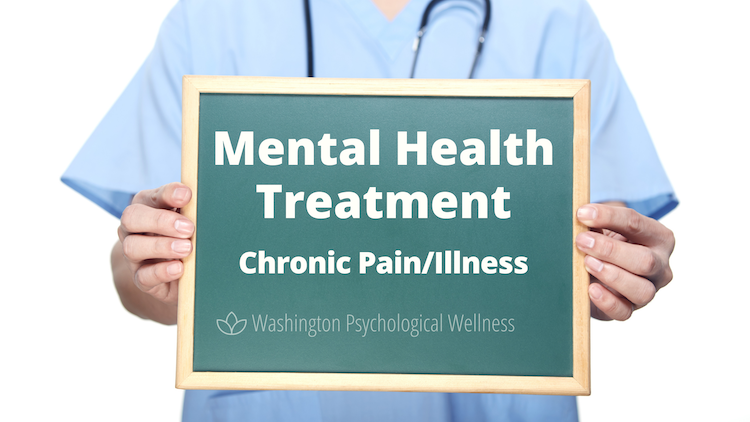
What is Chronic Pain and Illness?
Chronic pain and illness can impact numerous areas of one’s life.
Our physical health affects our energy, ability to function, relationships, mental health, and many other aspects of our existence. How we feel determines how we can perform in job settings, our desire to get out of bed, attend social events, and take care of ourselves.
It is normal to feel sad, scared, or depressed after receiving a long-term medical diagnosis or while managing chronic illness.
Those who have or know someone with a terminal illness may have to adapt to a new reality and deal with drastic changes and ongoing treatment.
This is not an easy battle. The good news is therapy can help.
Below we will explore the mental health consequences of chronic pain/illness and discuss how therapy can help with chronic pain and terminal illness.
What Are the Mental Health Consequences of Chronic Pain and Illness?
It is common to feel anxious, sad or discouraged after receiving a poor medical diagnosis or watching someone you care about deal with it.
Some may feel temporary sadness as they adjust to a new way of living, while others experience more severe and long-term issues such as depression and anxiety.
Chronic illnesses’ stress and uncertainty can affect people in many different ways depending on the presenting symptoms, availability of support, and treatment prognosis.
Symptoms that accompany chronic disease may increasingly affect someone’s ability to function normally or individually. They may experience trouble sleeping at night or staying awake, nausea and loss of appetite, lower energy levels, immobility, and a range of other issues.
Chronic pain or illness is not easy and can change one’s entire life trajectory in a matter of minutes or even seconds.
How Can Therapy for Terminal/Chronic Illness Help?
So, how can therapy help with chronic pain or illness?
Being diagnosed with a painful condition is stressful and scary. There are so many unknowns. How will your life change, will you survive, will you function effectively, will you get through life?
Unfortunately, stress can promote a range of health concerns, including high blood pressure, heart disease, diabetes, obesity, anxiety, and depression. Not only that, but stress can trigger muscle tension or spasms that inadvertently increase pain.
Therapy can help you deal with the complex emotions, fears, and stress that often accompany a chronic disease.
Therapy is a safe, judgment-free environment where you openly discuss your medical concerns with the help of an expert. Your therapist serves as a non-biased, objective supporter and advocates for your health, wellness, and overall life satisfaction.
With your therapist, you will learn how to deal with the inevitable anxieties surrounding chronic pain and illness.
Treatment will typically include relaxation training techniques such as meditation and breathing exercises to help control your stress.
Your therapist may also work with you to change old, non-adaptive thought patterns about pain with more realistic, adaptive ways of thinking.
Research indicates that by understanding and managing the thoughts, emotions, and behaviors that accompany pain, you can successfully cope with the pain while simultaneously reducing its intensity.
Do I Need Therapy for My Terminal/Chronic Illness?
Not sure if mental health treatment will help your chronic pain or illness?
Here are some questions to consider if you think you or a family member should seek therapy for chronic pain or illness:
- Does your sadness, irritability, or anxiety about the illness affect your daily functioning and productivity?
- Do you no longer enjoy hobbies or activities that you did before the diagnosis?
- Do you have concerns about the future that make it difficult to continue treatment or self-care?
- Have you thought about or attempted suicide?
- Have you isolated yourself from friends, family, or intimate partners as a result of your diagnosis or symptoms?
If your experience with a terminal illness has had an extreme and adverse effect on your ability to function and you answered “Yes” to one or all of these questions, therapy for chronic pain and illness may be right for you.
What Are My Next Steps?
Dealing with a chronic illness can be overwhelming, and it will take time to overcome the many aspects surrounding it.
At Washington Psychological Wellness, our therapists fully understand the complexities and intricacies surrounding chronic pain and illness, including how it can impact one’s mental health and overall life functioning. We are here to help.
Our team will provide you with a comprehensive, holistic and non-judgemental approach to treatment. We value the importance of collaboration of care and will continuously coordinate treatment with all of your treatment providers. Chronic pain is hard as it is, but you don’t have to fight it alone.
Interested in gathering more information on how therapy can help chronic pain and illness?
Contact us now for a complimentary 15-minute phone consultation.
